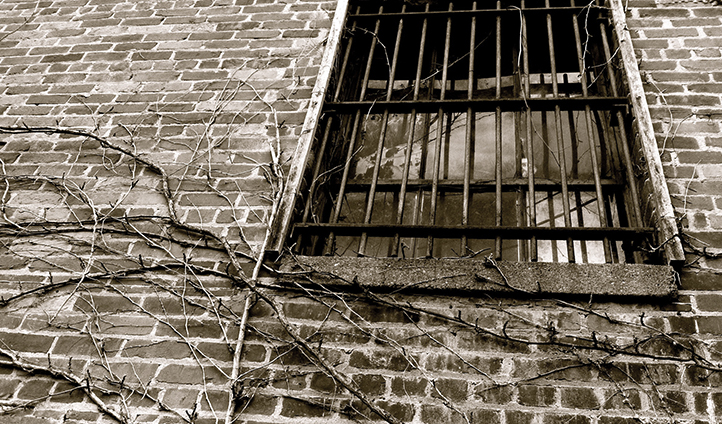Palko v Connecticut Established Selective Incorporation Doctrine
Historical
In Palko v Connecticut, 302 U.S. 319 (1937), the U.S. Supreme Court held that the Fifth Amendment’s immunity against double jeopardy was not a fundamental right. Accordingly, it did not apply to the states via the Fourteenth Amendment’s Due Process Clause.
Facts of Palko v Connecticut
In 1935, Frank Palka (his name was spelled incorrectly in court documents) shot a police officer after fleeing a burglary. Although Palka was charged with first-degree murder, he was convicted of the lesser offense of second-degree murder and sentenced to life in prison. The state of Connecticut appealed and was granted a new trial. Palko was subsequently found guilty of first-degree murder and sentenced to death.
Legal Background in Palko v Connecticut
The Fifth Amendment’s Double Jeopardy Clause provides that no person shall “be subject for the same offense to be twice put in jeopardy of life or limb.” Meanwhile, the Fourteenth Amendment’s Due Process Clause states that “nor shall any State deprive any person of life, liberty, or property, without due process of law.” The question before the Supreme Court was whether the Fifth Amendment protection against double jeopardy was binding on the State of Connecticut.
Court’s Decision in Palko v Connecticut
By a vote of 8-1, the Supreme Court upheld Palka’s conviction. Justice Benjamin Cardozo wrote on behalf of the majority.
In reaching its decision, the Court rejected the argument that the Fourteenth Amendment’s Due Process automatically made the protections set forth in the Bill of Rights binding on state governments. As Justice Cardoza summarized:
We have said that in appellant’s view the Fourteenth Amendment is to be taken as embodying the prohibitions of the Fifth. His thesis is even broader. Whatever would be a violation of the original bill of rights (Amendments 1 to 8) if done by the federal government is now equally unlawful by force of the Fourteenth Amendment if done by a state. There is no such general rule.
The Court, however, did agree that some provisions of the Bill of Rights applied to states. In establishing the doctrine of “selective incorporation,” Justice Cardoza stated that the determination of whether a right was binding on the states should be made on a case-by-case basis, with only those “essential to a fundamental scheme of ordered liberty” binding on the states. He further explained:
We reach a different plane of social and moral values when we pass to the privileges and immunities that have been taken over from the earlier articles of the Federal Bill of Rights and brought within the Fourteenth Amendment by a process of absorption. These in their origin were effective against the federal government alone. If the Fourteenth Amendment has absorbed them, the process of absorption has had its source in the belief that neither liberty nor justice would exist if they were sacrificed.
With regard to double jeopardy, the Court concluded it was not a fundamental right. Justice Cardoza wrote:
Is that kind of double jeopardy to which the statute has subjected him a hardship so acute and shocking that our policy will not endure it? Does it violate those ‘fundamental principles of liberty and justice which lie at the base of all our civil and political institutions’? … The answer surely must be ‘no.’ … The state … asks no more than this, that the case … go on until there shall be a trial free from the corrosion of substantial legal error. … This is not cruelty at all, nor even vexation in any immoderate degree. If the trial had been infected with error adverse to the accused, there might have been review at his instance, and as often as necessary to purge the vicious taint. A reciprocal privilege, subject at all times to the discretion of the presiding judge … has now been granted to the state. There is here no seismic innovation. The edifice of justice stands, its symmetry, to many, greater than before.
More than 30 years later, the U.S. Supreme Court incorporated the protections of the Double Jeopardy Clause in Benton v. Maryland.
Previous Articles
SCOTUS Rules State Can’t Immunize Parties from Federal Civil Liability
by DONALD SCARINCI on January 29, 2026
In John Doe v. Dynamic Physical Therapy, LLC, 607 U.S. ____ (2025) the U.S. Supreme Court held that...
Supreme Court to Address Racial Discrimination in Jury Selection
by DONALD SCARINCI onWhile the U.S. Supreme Court has concluded oral arguments for the year, it continues to add cases t...
Supreme Court Halts Deployment of National Guard to Chicago
by DONALD SCARINCI on
In Trump v. Illinois, 607 U.S. ____ (2025), the U.S. Supreme Court refused to stay a district court...
The Amendments
-
Amendment1
- Establishment ClauseFree Exercise Clause
- Freedom of Speech
- Freedoms of Press
- Freedom of Assembly, and Petitition
-
Amendment2
- The Right to Bear Arms
-
Amendment4
- Unreasonable Searches and Seizures
-
Amendment5
- Due Process
- Eminent Domain
- Rights of Criminal Defendants
Preamble to the Bill of Rights
Congress of the United States begun and held at the City of New-York, on Wednesday the fourth of March, one thousand seven hundred and eighty nine.
THE Conventions of a number of the States, having at the time of their adopting the Constitution, expressed a desire, in order to prevent misconstruction or abuse of its powers, that further declaratory and restrictive clauses should be added: And as extending the ground of public confidence in the Government, will best ensure the beneficent ends of its institution.





